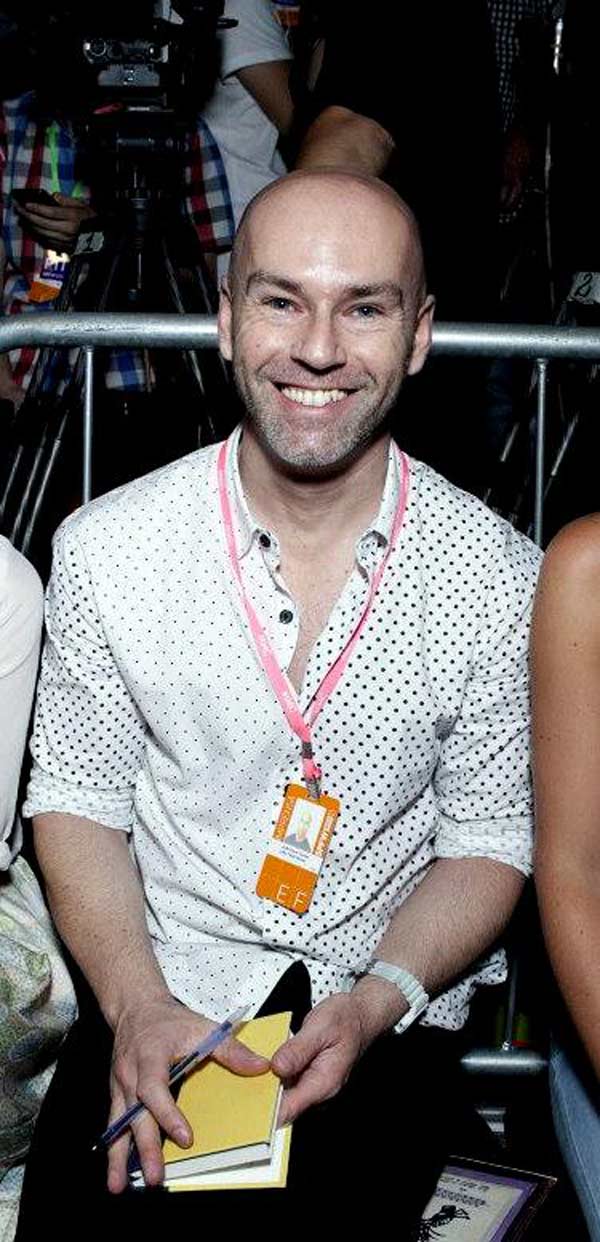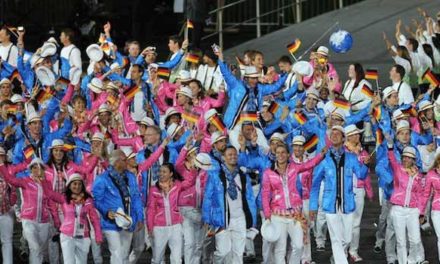Interview with Joao Paulo Nunes
Could you explain to our readers who you are, what you do?
My name is João Paulo Nunes and I guess I can be described as a part-time freelance fashion and lifestyle journalist. Although I have a full-time job that is completely unrelated to fashion, I am very passionate about reading and writing about all matters fashion-related and do it when I have some free time. I started writing about fashion as a hobby about some three years ago through my blog The Style Examiner and I have been fortunate that a number of editors saw my articles, liked them and invited me to write for their magazines.
What do you consider your career highlights so far?
I have had a few highlights in terms of career achievement and material accomplishment (such as receiving academic merit awards when I was studying at University or having been made a Fellow of the Royal Society of Arts a few years ago) but I suppose my most cherished highlights come from emotional fulfilment. In that sense, I find it a career highlight when I meet complete strangers in international fashion events as far afield as São Paulo or Hong Kong who had heard of me and had been following The Style Examiner. This is nice even if a bit daunting as I am not a very public person and don’t have any photos of me on the blog…
Your article ‘An education in the fabric of fashion’ on the manufacture of wool was fabulous. In it, you say that the process of making fabric (from inception to the moment one handles the finishing touches) is an extremely valuable education. Why is that?
I am very glad you liked it. It was a very popular article and one that people seemed to enjoy reading (at least, from the number of hits it got and the feedback I received). Woolmark invited me to follow menswear designers Agi & Sam (whose work I admire) on a trip to wool manufacturers in the north of England and they gave me the exclusive press coverage, which was very kind of them. I had a fantastic day with Agi, Sam and two very knowledgeable representatives from Woolmark visiting three mills in Bradford and Huddersfield that have been making fabrics for high-profile fashion and clothing brands for decades. After the trip, I realised that anyone interested in fashion (and students in particular) should spend a few days working in those mills to understand the nature and qualities of fabric. However, I also think that people involved in producing textiles in those mills would also benefit from undergoing a similar period of experience in design studios or even in fashion PR and journalism offices. The more understanding all parts involved in this multi-million industry have of what each other do, the better.
MSF is all for keeping production within Britain. Do you agree with this?
When it comes to manufacture, I think that it’s essential that quality and innovation of production be supported (as well as being mindful of the welfare and working conditions of factory workers) regardless of where it takes place. The view that production should take place in one specific locality is obviously important to sustain the livelihood of its community and the local economy, but we must not forget that we live in a global market where the best production outputs, the most effective and sustainable practices, and the most rewarding contributions to a community may be happening thousands of miles away. Britain has an outstanding tradition of making fabrics of very high-quality but, in my view, that is not enough. Even though it’s important to learn from tradition, British designers and manufacturers must work together to push the boundaries of what they know and what they do towards the future. My view is that Britain has some of the best fashion schools and some of the most talented young fashion designers; it’s just a matter of harnessing their creative power and sharing it with manufacturers.
At the last London Collections: Men, Burberry put on an epic catwalk as a return statement to the UK, almost as if proudly saying ‘We are back!’ What are your thoughts on why they did this? And why is it important for a brand to stick to its original roots?
Sometimes, I think that I have been extremely lucky to have been able to attend all three editions of London Collections: Men to review menswear collections but sadly I never received an invitation to a Burberry show. (laughs) LCM has become better and better and the British Fashion Council does an exceptional and unparalleled job in promoting London-based menswear designers, not only during the fashion weeks but also through funding schemes, training platforms, and by organizing the ‘London Show Rooms’ all over the world to promote home-grown talent. There is still a perception that journalists attend LCM to review the collections but that business (in the form of sales) is still conducted in Paris. Having British brands such as Burberry showcasing in London and not in Milan, Paris or New York is certainly changing that, and because London has so much to offer I very much hope that British designers such as Victoria Beckham, Stella McCartney and Paul Smith change their minds and show their collections during the sartorial showcases that London puts together so impressively.
London men dress not only well in a classic way for business occasions, but they can also walk around with the most daring creations that no-one bats an eyelid.
After I attended my first ever LCM, I wrote an article about how men had lost their passion to dress up and dress well. What are your thoughts on what is happening regarding men’s fashion in London? Are London-based menswear designers leading the way?
I’m not sure I agree… I think British men these days also have more options to dress well because high street retail chains all over the country offer very stylish and affordable garments. You can go to Topman, River Island, Zara, H&M, All Saints, Zara, Uniqlo (and many others) and find lots of good options. In general, Italian men dress elegantly whereas Parisians are very disappointing; however, London men dress not only well in a classic way for business occasions (as you can see in the nice suits worn in areas such as the City or Canary Wharf) but they can also walk around with the most daring creations that no-one bats an eyelid. When it comes to fashion designers, my personal view is that Milan men’s fashion week and Florence’s Pitti fairs are very important when it comes to business volume but you don’t get to see much creativity being embraced. Paris is impressive in the sense that it attracts very talented designers from all over the world and you get to see exciting creativity from Japan, South Korea, etc. However, London is very special in the sense that young people come from all over the UK and the world to study in prestigious fashion schools such as Central Saint Martins, London College of Fashion, the University of Westminster or Kingston University (to name a few) and, once they graduate, they go on to work with established designers or set up their own labels in the city. When you combine all this budding talent with a collective social acceptance of eccentricity and individual style (that is uniquely British), the result is an extremely vibrant fashion scene.
We had an 18 year-old sending us a tweet asking about what to do to look good and to develop his own style. How would you answer this?
The most important thing in fashion, for anyone of any age, is to feel confident and comfortable in your own skin. If you want to look good, I suggest you start by reading magazines and books or see films with representations of men’s fashion, and try to copy the trends that you like. However, to develop you own style, you need to go one step further and not be afraid to explore and show what you are drawn to. Follow your gut feeling about what you like and try to incorporate your own sense of style into your clothes and accessories; this could be done by replacing your black shoelaces with blue ones, splash paint on a t-shirt, remove the white buttons and thread from a white shirt and replace them with green buttons and red thread… The possibilities are endless and they should come from your imagination. The more you explore, the more you develop your own style.
How would you describe your style?
I’m not as adventurous with my style as often and as much as I would like owing to the professional contexts in which I spend most of my time during the day. Outside that, my style is one that ideally remains masculine while pushing the boundaries of traditional menswear. However, when I am at home, I am very much a ‘jeans and t-shirt’ kind of guy. (laughs)
What is your favourite colour, your favourite jacket and your favourite shoes?
I have always liked blue in all its different shades, but I enjoy dressing in black with accents of different colours or white thrown in. My favourite jacket is a limited-edition double-breasted black overcoat that British label Burton reproduced from its 1940s archives a few years ago. It has a red lining, some interesting military details and a stylish narrow silhouette. As for shoes, I bought a pair of United Nude ‘Helix’ shoes a couple of years ago that are very comfortable and very original: each shoe looks as if it’s made from a long and thick black strap that wraps around the foot, almost like a bandage. I guess you have to see them…
MSF is about promoting up-and-coming designers. What’s the most important advice or tips you would give to guide a budding designer?
Stick to what you believe, grab all opportunities that come your way and, most of all, work very hard. I think that the celebrity culture that is so pervasive and the talent shows on TV give an idea that you are owed something and that, no matter what you do, you will be recognised with fame and fortune. That is a very dangerous way to see the world as that form of success happens to very few people and when it does it doesn’t seem to last long. The vast majority of people get ahead in life by working extremely hard.
There are many bloggers out there working for free and who have no clue where to head or how to earn a living. What are your views on this? Can you provide any advice to someone starting a blog?
Start out by identifying what you like and are good at as a way to find your niche; then turn that into new and original content to blog about. Having said that, with so many millions of blogs out there (some people suggesting that there are over 500 million blogs these days!), if you can’t be original, try to be the best at what you do: the best writer, the best photographer, the best film maker, the best stylist… Promotion of your blog is also important (and social media is very good for this) but you need to have relevant content. And whatever you end up blogging about, be aware of the consequences of what you publish: even if anonymously, by putting your words, films or photos out there, you have a responsibility for what you are making public. Once you know where you are going with your blog, keep going. Most people create blogs but don’t update them; if you want followers, you need to keep them engaged by publishing regularly. And remember that very few people make a living out of blogging; you may get lots of products to review and be invited to events but those things don’t pay the bills. My advice is to see blogging as a hobby to start and keep it that way until it secures a steady income from associated activities (advertising, consultancy, etc).
Why does the fashion industry need bloggers? Are they just free press that the fashion industry seems to love but not want to pay for?
Those are very good questions to which I have been trying to find the answers… Although fashion bloggers have been around for over a decade, the fashion industry is still unclear about how to deal with them and that’s mainly because blogging is an unregulated form of communication that derives from the personal opinion of one individual, which is good and bad. On the one hand, the industry is aware that blogging can be both profitable and a threat to established communication platforms: popular bloggers with millions of followers are obviously very powerful and if they feature certain brands or products in a positive light that action leads to an exponential increase in sales; also, blogs can provide information very quickly and very economically. On the other hand, some people in the industry blame bloggers for the decline in print media as they are perceived as having taken work away from journalists. My view is that there are good and bad bloggers as there are good and bad journalists and editors, and it’s important to create some form of regulation based on qualitative and quantitative criteria.
A few weeks ago, the British Fashion Council invited me and other bloggers to join a Bloggers Panel as part of its strategy to review how to interact with bloggers. It’s still early days but my personal view is that there should be some mechanism of accreditation or regulation of bloggers. By establishing that, hopefully the industry will start recognising blogging as a legitimate form of communication that, in its most accomplished format, includes high-quality and thorough thinking, researching, writing/editing and publishing.
You have attended international fashion weeks such as São Paulo Fashion Week and Fashion Rio. What were your personal highlights? And for those who have never been to those events in Brazil, why should they go?
I have attended São Paulo Fashion Week and Fashion Rio a few times to cover the collections and designers for my blog and also for the Huffington Post, where I am a contributor. I absolutely love both events because, even though they are so different from what you see in London, Paris, Milan or New York, the fashion talent in Brazil is really impressive! São Paulo Fashion Week commands impressive figures as the fifth most influential fashion week globally and the main one in Central and South America, with very accomplished designers and labels such as Alexandre Herchcovitch, João Pimenta, Osklen, Tufi Duek and Têca by Helo Rocha. Fashion Rio has a more relaxed vibe but it’s a place where beachwear is not only outstanding but also a major industry, and labels such as Andrea Marques, Blue Man, Filhas de Gaia, Lenny Niemeyer, Maria Filó and R. Groove really stand out. Anyone interested in fashion should try to attend as many fashion-related events as possible and, obviously, fashion weeks are great opportunities to learn about the work of unknown talented designers who are often overlooked by the big brands. There is a perception that fashion weeks are glamorous and a place to see and be seen but, as trade events that condense a lot into a few days, they are hard work: you spend all day running around, queuing and waiting for shows to start, try to find some free time and space to grab something to eat or do some work, and you only stop to get a few hours’ sleep. Although some people dress up, because I am always on the run to see as many as 10 or shows a day, I make sure that I wear comfortable clothes and shoes. I also try to drink lots of water to counterbalance the many espressos that I consume every day during fashion week!
If you were to be included in a painting, which would you have loved to be a part of?
That is a very strange question and something that has never crossed my mind! (smiles) I suppose that, as I love all of Marc Chagall’s paintings, if I could travel back in time it would have been an honour to be included in his work in any way that he would have found appropriate.
Why do you do what you do? What drives you?
I am not driven by money or social status as fashion journalism (blogging or otherwise) does not pay well, and I am certainly not driven by social status or the desire to become a celebrity. I write because I love writing and, strange as it may sound, if I weren’t able to do it my life would be much poorer. I suppose it’s my preferred form of communication, so it is something that I need to do in order to share my thoughts with the rest of the world.
What do you want to be known for when you die?
I have honestly never thought of that… (pauses) I recently read an interview with David Remnick (editor-in-chief of The New Yorker) in Port magazine, where he stated that “we still haven’t invented anything as complex, as glorious, as human, and as emotionally deep and intellectually far-reaching as language. My ultimate goal as the editor of a magazine is to pare and safeguard language, accuracy, depth, humour, fiction.” Isn’t that a beautiful guiding principle? I suppose that I’d like to feel that I am contributing to a celebration of accomplished language as much as I can. If my writing somehow turns into a legacy that will enrich the thoughts and feelings of others then that would be wonderful.
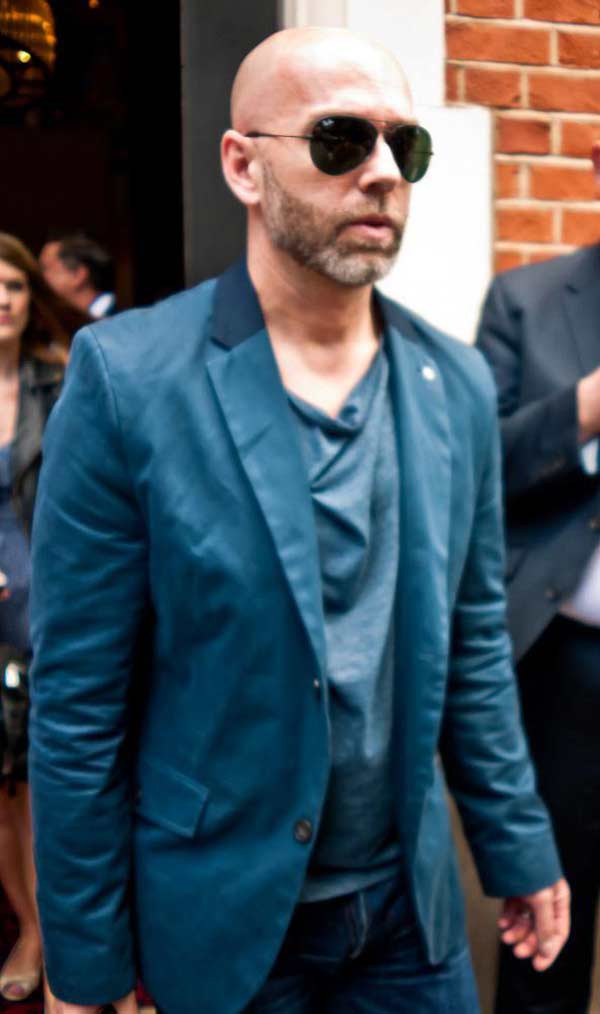
www.fashionstreetmonitor.com
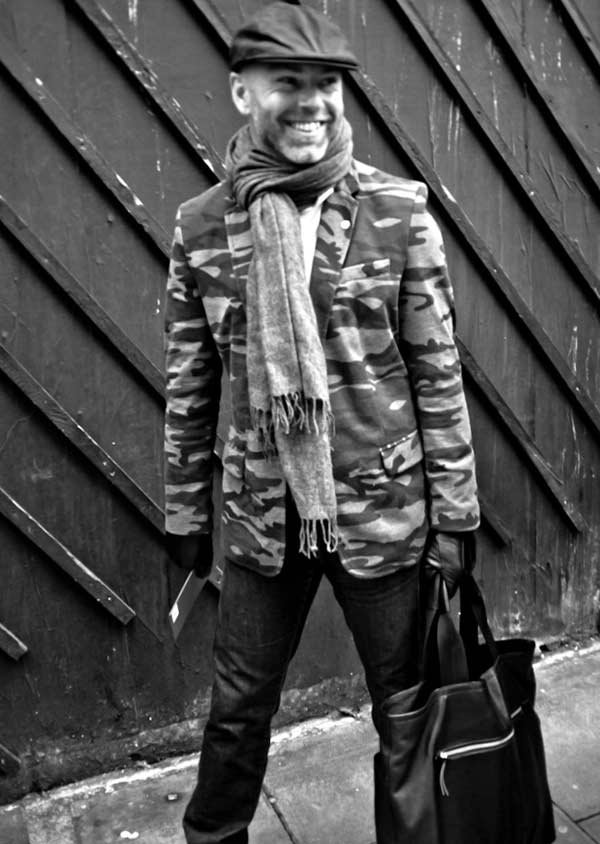
www.fashionstreetmonitor.com
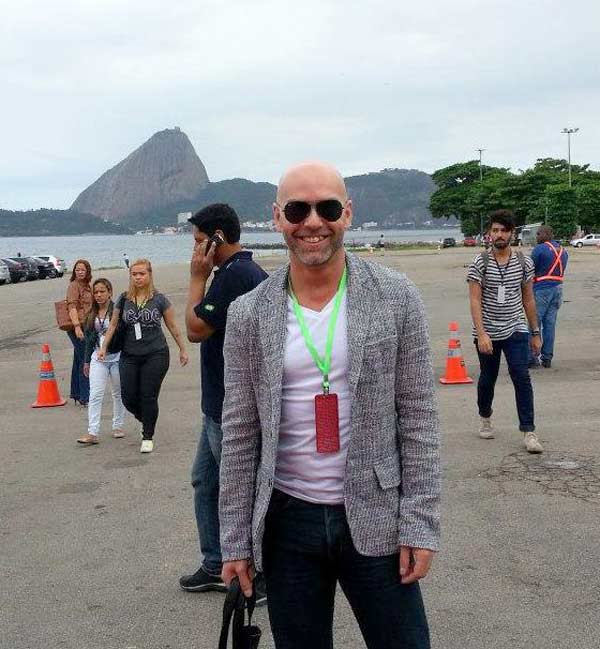
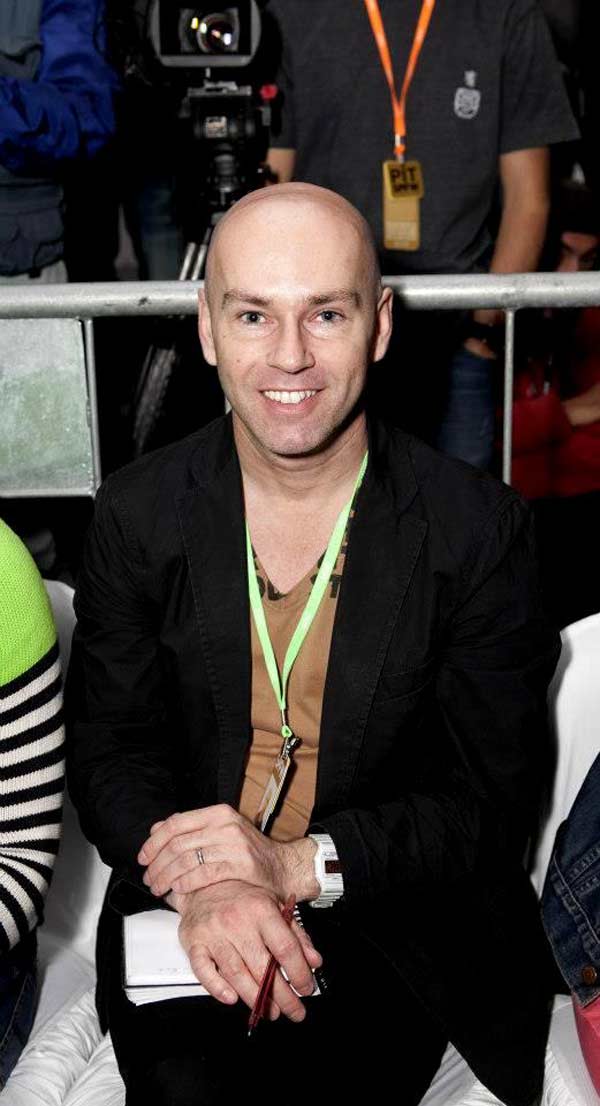
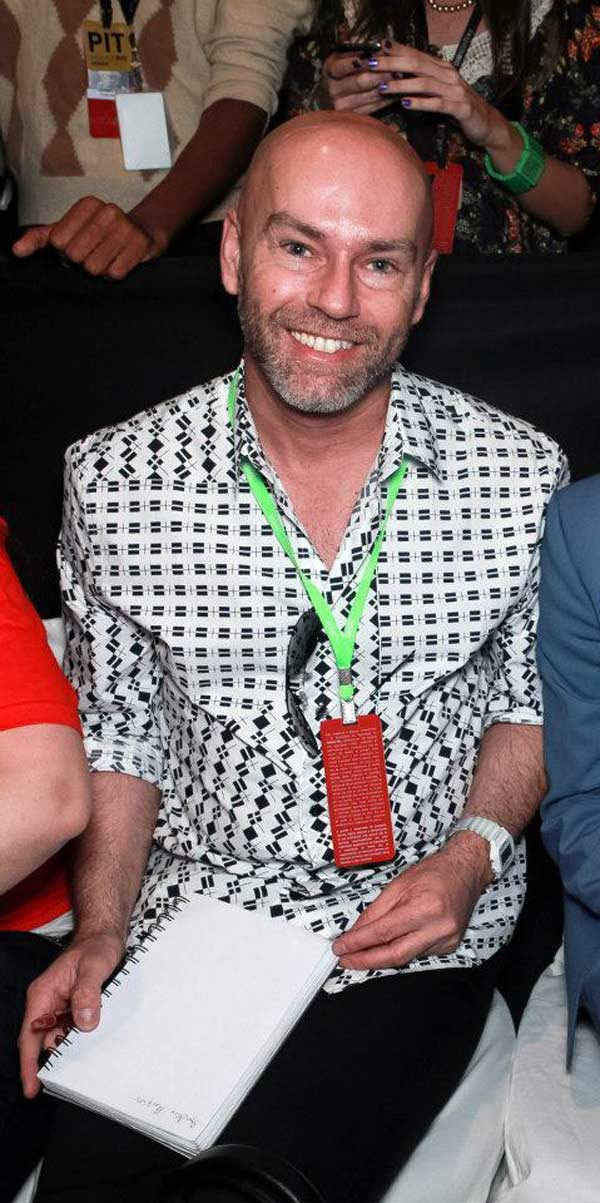
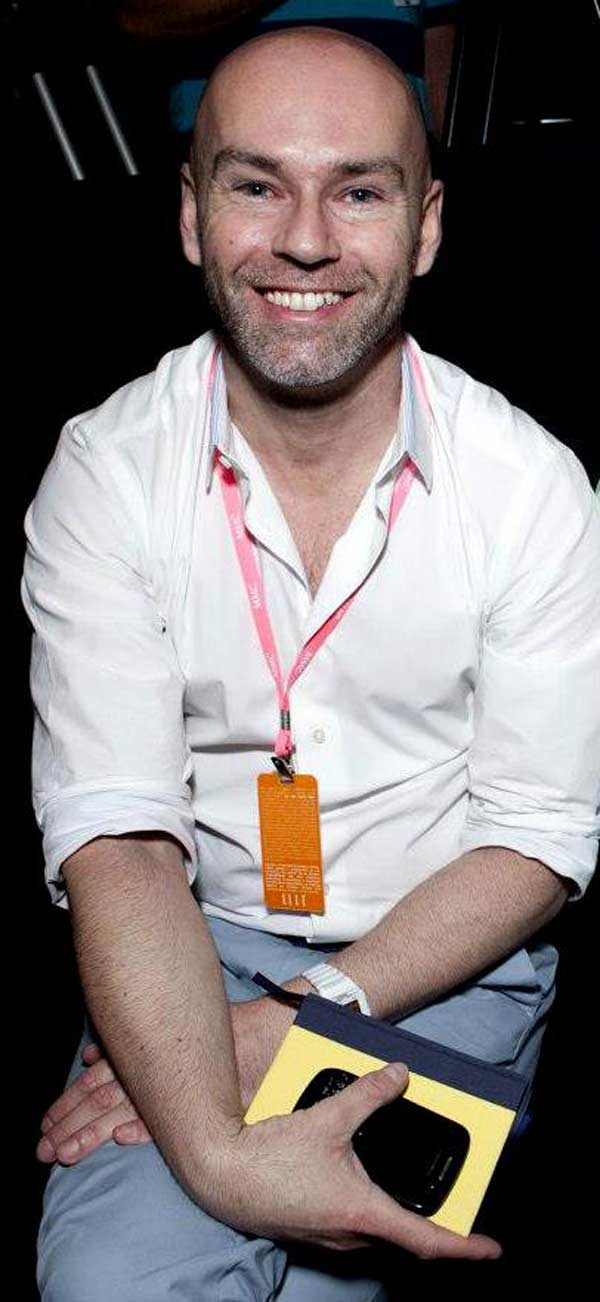
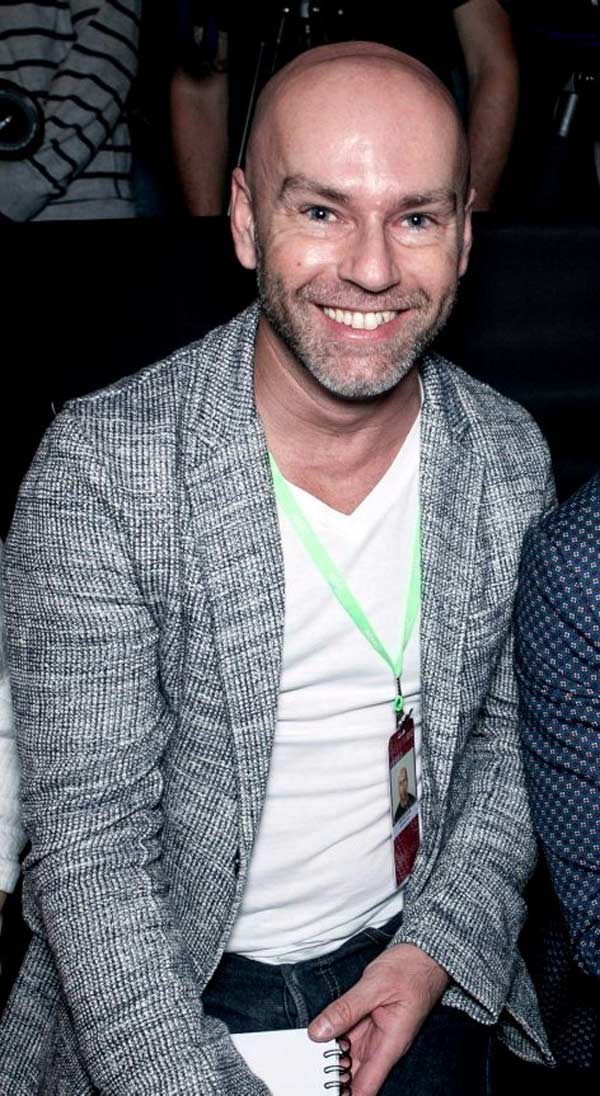
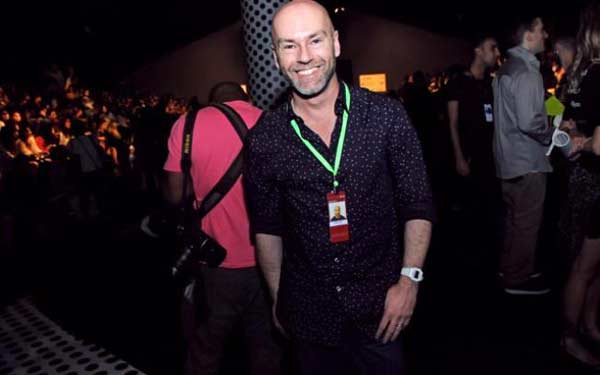
Eddu Ferraccioli, RG magazine
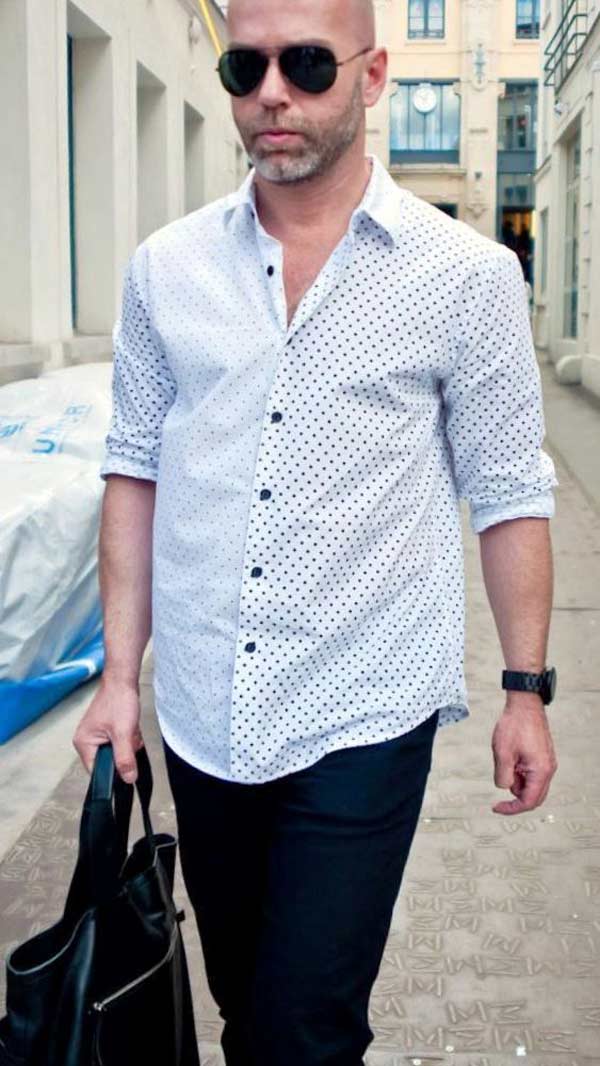
www.fashionstreetmonitor.com


